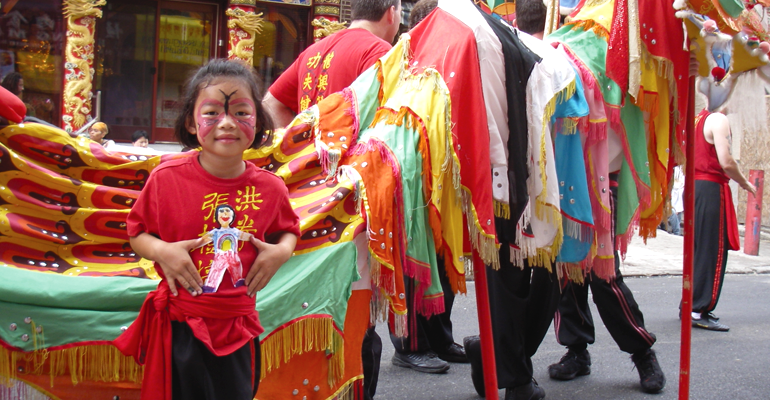When a child is young, adoption-related or cultural events should be part of your family routine, much like school or church. Whether he recognizes the importance of specific activities matters less than learning to think of them as a normal aspect of family life — rather than as “special,” one-time events.
As they grow, kids may begin to feel indifferent to their heritage. If your child seems to lose interest in his cultural heritage, he may simply be comfortable with it for now and want to explore other aspects of who he is. It’s also possible that children his age may shy away from anything that sets them apart.
Many adult adoptees have told me they wish their parents had insisted they stick with language lessons, for example. But, at the time, they rebelled against anything that made them feel different.
You can involve older children in planning activities, and continue to offer them as part of your family routine. If certain traditions are non-negotiable, decide what these are early on, and pick your battles wisely.
In general, don’t force culture on a child. As your son develops his identity, his heritage will be just one aspect of that. If he opts out of a Korean cultural event, you can validate his feelings by saying, “I guess we overfocused on the Korean part of you. Let’s balance that with other activities you like — though we’ll still go to Korean restaurants, since we all love bulgogi.”
A lifelong exploration
A parent should give his child the time and freedom to explore his heritage, and to arrange components as he forms his identity. If your goal is to instill pride, then your job, for the moment, may be done. Maintaining a healthy racial and cultural identity is a lifelong process — and one that he should own.
A few years ago, I helped a family work through a cultural conflict. The parents placed so much emphasis on their children’s heritage that they seemed more invested than the children were. After some intense conversations, and a few tears from everyone, they decided to scale back on adoption-related and cultural activities.
Shifting to a supporting role can be hard, but keep your real goal in mind. Yes, culture camps, group meetings, and agency picnics are all great fun, but, if your child is no longer interested in them, or feels uncomfortable in these environments, it may be time to ask whose needs are being met. Find new ways to explore your child’s roots. Perhaps you can continue to go to such events, but your child can take on a mentoring or teaching role befitting his age.
A fine balance
Balancing cultural activities with the “stuff” of everyday life is a challenge that every transracial family will face. There will be times when everyone wants to go to culture camps, eat at certain restaurants, or spend time with similar families. But there should also be time for soccer or tennis camp, art lessons, or just hanging out with friends.
For now, offer activities that focus on your son’s heritage, but also look for ways to make his heritage seem relevant to his life. For example, if he’s a baseball fan, research the Asian-Americans who play in the major leagues.
Parents sometimes get caught up in thinking that they must provide everything their children will ever need, including a sense of ethnic identity. This is not true, nor even possible. Your son has the rest of his life to work on this. Your job is to provide information and access; the rest is up to him.



